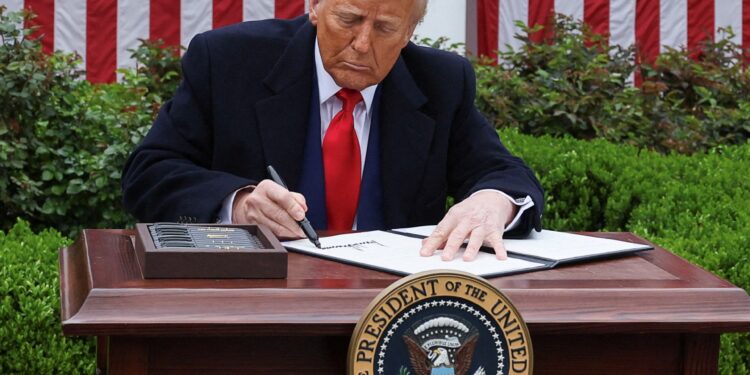In light of the recent escalation in American commercial policies, the possibilities of reaching an agreement to reduce the customs duties imposed by US President Donald Trump are still far -fetched, according to a report by the Interesting website on April 7, 2025, quoting the Wolf Reserve Foundation.
Although more than 50 countries started talks since the announcement of customs duties on April 2, official references indicate that the US administration is looking at these drawings as a long -term structural tool, and not just a negotiating pressure card.
“We believe that the president does not seek deals, but rather to impose large customs duties,” said Toby Marcus, head of the Wolf Reservation Unit at Wolf Reservo
“It is likely that any amendment to this policy will not happen unless real indicators appear on an actual economic weakness, and not just a decline in the financial markets,” Marcus added.
Economic pressure continues
Trump has stated at a press conference on April 6: “We have to solve the problem of the trade deficit, we have a trillion -dollar deficit with China … and if we do not solve this problem, I will not make any deal,” which reduces the possibilities of reaching a quick solution.
For his part, the US Treasury Secretary Payette and the Minister of Trade Lottenic stressed that customs duties constitute a “necessary correction of historical commercial imbalances.”
Despite Trump’s reference to a “very constructive” call with Vietnam, Marcus reduced the importance of this openness, saying, “We do not see that this means that an agreement is close to reaching an agreement,” noting that the administration continues to criticize the Vietnamese commercial policies, and explained that “canceling the fees alone is not enough.”
Marcus pointed out that any concrete decline in customs duties will not likely happen unless real weaknesses appear in the economy, and not only in the financial markets. He also considered that the signing of a trade agreement with a country such as Vietnam that includes reducing the trade deficit may be a reference to a shift in the position of management, and will be seen as a positive factor in the markets.
These developments come at a time when global markets are witnessing increasing turmoil due to the American customs duties policy, with fears of their repercussions on global economic growth.



